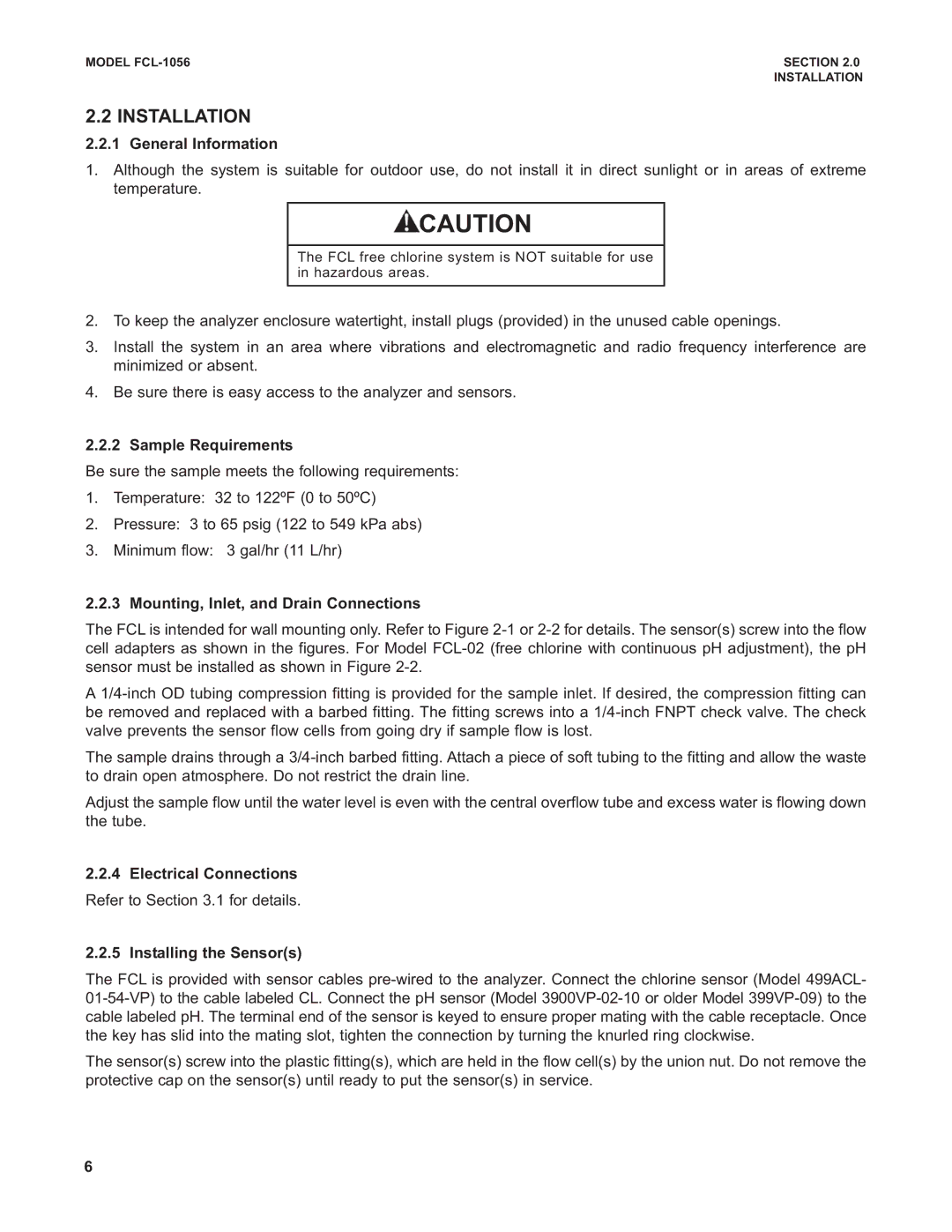
MODEL | SECTION 2.0 |
| INSTALLATION |
2.2 INSTALLATION
2.2.1 General Information
1.Although the system is suitable for outdoor use, do not install it in direct sunlight or in areas of extreme temperature.
![]() CAUTION
CAUTION![]()
The FCL free chlorine system is NOT suitable for use in hazardous areas.
2.To keep the analyzer enclosure watertight, install plugs (provided) in the unused cable openings.
3.Install the system in an area where vibrations and electromagnetic and radio frequency interference are minimized or absent.
4.Be sure there is easy access to the analyzer and sensors.
2.2.2 Sample Requirements
Be sure the sample meets the following requirements:
1.Temperature: 32 to 122ºF (0 to 50ºC)
2.Pressure: 3 to 65 psig (122 to 549 kPa abs)
3.Minimum flow: 3 gal/hr (11 L/hr)
2.2.3 Mounting, Inlet, and Drain Connections
The FCL is intended for wall mounting only. Refer to Figure
A
The sample drains through a
Adjust the sample flow until the water level is even with the central overflow tube and excess water is flowing down the tube.
2.2.4 Electrical Connections
Refer to Section 3.1 for details.
2.2.5 Installing the Sensor(s)
The FCL is provided with sensor cables
The sensor(s) screw into the plastic fitting(s), which are held in the flow cell(s) by the union nut. Do not remove the protective cap on the sensor(s) until ready to put the sensor(s) in service.
6
